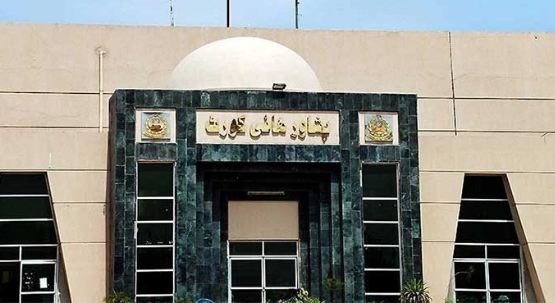Peshawar, JAN 2: The Peshawar High Court on Tuesday reserved its verdict on review pleas filed by the Election Commission of Pakistan (ECP) against the PHC’s decision to suspend the electoral watchdog’s declaration of PTI’s intra-party polls as void and the revocation of its election symbol.
On December 22, the ECP had decided against letting PTI retain its iconic ‘bat’ symbol for the February 8 general election, saying that the party had failed to hold intra-party polls — which saw Barrister Gohar Khan becoming the PTI chairman — in accordance with its prevailing constitution and election laws.
Subsequently, the PTI had approached the PHC. Last week, the court had suspended the ECP’s declaration of the PTI’s intra-party polls as unconstitutional as well as the subsequent revocation of the party’s iconic symbol.
It had also noted that general elections were scheduled for February 8 and the last date for allotment of election symbols was January 13.
On Saturday, the ECP had filed a review petition in the PHC against the suspension of its decision to declare PTI’s intra-party polls as void and not let the party retain its ‘bat’ electoral symbol.
During the hearing today, presided by Justice Ejaz Khan, ECP counsel Sikandar Mohmand appeared in court.
At the outset, the judge inquired if the Supreme Court had passed orders that directives issued by a high court applied to the entire country.
“Absolutely. The SC suspended the Lahore High Court’s decision regarding returning officers,” the lawyer replied. He elaborated that the judgment was suspended under a unilateral decision.
“The second point is that the interim relief and final plea are the same,” he added. At one point, the judge asked where the petitioner in the case was to which the ECP counsel said he was unaware.
Justice Khan also stated that he could not issue an order in the case as it was fixed before a division bench on Jan 9. However, the ECP lawyer said he only wanted the court to withdraw the PHC order, adding that arguments would be presented before the division bench.
Subsequently, the court reserved its verdict.
ECP pleas
ECP’s counsel, Mohsin Kamran Siddique, had filed two applications in the high court.
In one application, the ECP requested the high court to accept its plea and recall the interim relief granted to the petitioners (PTI leaders) by a single-member bench on Dec 26. In the other, the commission has sought the formation of a two-member special bench to hear the matter.
It argued that the writ petition of the PTI came up for hearing before the high court on Dec 26 and the court passed an interim order without issuing notice to the ECP.
“The petitioners have sought interim relief for the suspension of the order of the commission dated Dec 22, 2023, as well as for publication of intra-party polls certificate on the commission’s website along with restoration of party symbol (bat). That the interim order referred herein above, in fact, decides the whole writ petition which amounts to granting of final relief,” the ECP said.
“That under Article 199 of the Constitution of the Islamic Republic of Pakistan, the High Court of a province is empowered to make an order directing a person performing within its territorial jurisdiction. The election symbol of the petitioner is to be allocated across the country, hence without conceding the impugned order, the same has prima facie been passed beyond the territorial jurisdiction of this Hon’ble Court,” it said.
The ECP also argued that issues raised in the PTI’s writ petition were exclusively within the commission’s purview and generally not subject to judicial review under Article 199.
“Even otherwise it is settled law that disputed questions of facts cannot be resolved while exercising jurisdiction under Article 199 of the Constitution. The Constitution unambiguously vests the powers and jurisdiction in the commission to make factual determinations in regard to the subject matter of the writ petition,” the ECP added.
















